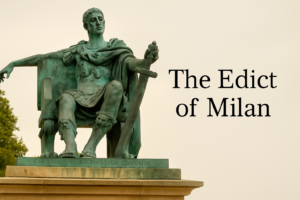Religion has been an integral part of human civilization for centuries, shaping cultures, providing moral guidance, and offering a sense of purpose and belonging. While some argue that religion is becoming increasingly irrelevant in today’s rapidly changing world, it is important to recognize the enduring impact it continues to have on individuals and societies. This article delves into the transformative power of religion, highlighting its significance and relevance in the modern era.
Finding Meaning and Purpose:
In an age of uncertainty and existential questions, religion offers a framework through which individuals can find meaning and purpose in their lives. Religious teachings provide guidance on how to navigate the complexities of existence, offering comfort, solace, and a sense of direction. The belief in a higher power or divine purpose instills hope and optimism, allowing individuals to find solace in times of adversity.
Moral and Ethical Guidelines:
Religion often serves as a moral compass, providing ethical guidelines and principles that shape personal behavior and societal norms. Religious texts and teachings emphasize virtues such as compassion, justice, forgiveness, and respect for others. These principles foster a sense of responsibility and accountability, encouraging individuals to live virtuous lives and contribute positively to their communities.
Sense of Belonging and Community:
Religion brings people together, fostering a sense of belonging and community. Places of worship serve as gathering spaces where individuals can connect with others who share their beliefs, fostering social cohesion and support networks. This communal aspect of religion provides a sense of identity and belonging, combating feelings of isolation and promoting social interaction and cooperation.
Coping with Adversity:
Religion plays a vital role in helping individuals cope with life’s challenges and hardships. During times of grief, loss, or personal struggles, religious communities offer support, comfort, and rituals that aid in the healing process. The belief in a higher power provides solace and the assurance that one is not alone in their suffering, offering strength and resilience in the face of adversity.
Interfaith Dialogue and Tolerance:
In an increasingly diverse and interconnected world, religion can serve as a catalyst for interfaith dialogue and understanding. By promoting mutual respect and appreciation for different religious traditions, societies can foster tolerance, empathy, and peaceful coexistence. Interfaith initiatives encourage collaboration and bridge-building, breaking down barriers and fostering a sense of unity among diverse communities.
Inspiring Positive Change:
Throughout history, religion has been a driving force behind significant social and humanitarian movements. Religious leaders and organizations have played pivotal roles in advocating for justice, equality, and human rights. Their teachings inspire individuals to engage in acts of kindness, charity, and service, promoting a more compassionate and just society.
Religion continues to be a powerful force in shaping individuals’ lives and the world around them. Its ability to provide meaning, guidance, community, and moral foundations remains relevant in the modern era. Despite the challenges and criticisms it faces, religion continues to inspire transformative change, foster social cohesion, and offer solace and support to individuals in their personal and collective journeys. Acknowledging and understanding the transformative power of religion can help us appreciate its enduring significance in our rapidly evolving society.













